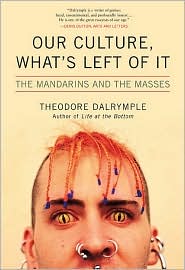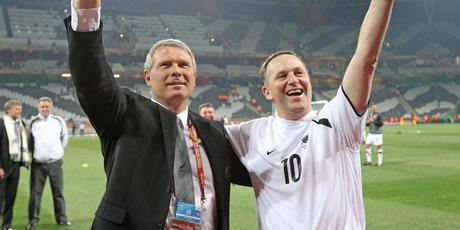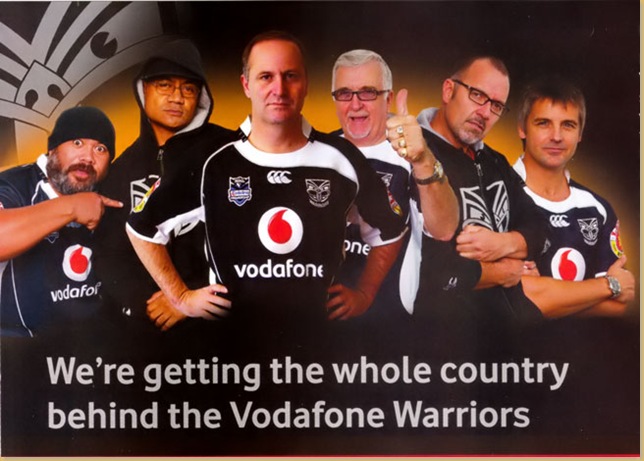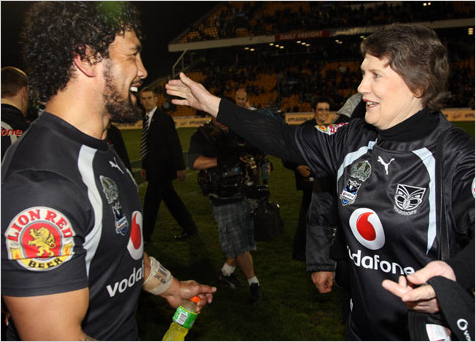Commenter Chris (not THAT Chris), says:
For all I know, [Dame Susan Devoy] may be a complete dud, or a wonderful race relations mediator. But whatever she is, you are being totally unrealistic passing judgement on her because she refused to appear on TV within a day of starting her (part-time) job.
Well, no. A part-time job that pays $270k per year? Someone appointed to a role like this should not need on-the-job training to be able to answer basic questions about it. Nobody is asking for detailed policy analysis or in-depth engagement with specific issues — only for broad discussion in principle, so we can get a sense of where she stands, and how her qualifications on race relations differ from those of some random person down the pub.
On previous performance I’d have thought there wasn’t that much to distinguish her from someone down the pub on these issues. But recently Toby Manhire dug up this wee gem from her autobiography, in which she reveals that the only thing preventing her from playing the “sunshine circuit” in apartheid South Africa was the threat of sponsorship being cancelled and that “media coverage could damage my reputation in this country.”
She also doesn’t think sports boycotts helped the situation there. Here are two people who do:
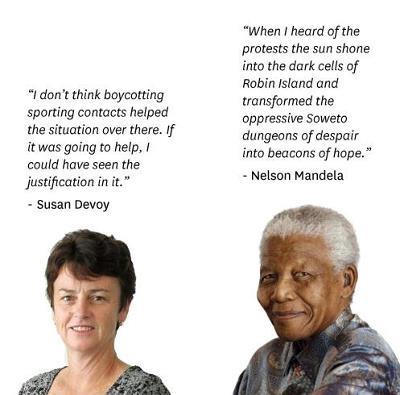

Dame Susan’s words were probably written in 1992, and it is possible she holds a different view now. I hope someone will ask her. But by 1992 the end of apartheid was already nigh, several years of negotiations to end it having already been undertaken between the government of FW de Klerk and Nelson Mandela (who had been out of prison since 1990). South Africa fielded a “non-racial” team at the 1992 Olympic Games in Barcelona — the first Olympics it had been permitted to compete in since 1960. The notion that sport had not been an important factor in its end is simply not credible, and was not credible in 1992 either.
So I know whose side I’m on. Still, it beats the Prime Minister’s claim that he didn’t know what side he was on. At least Dame Susan is open about her ignorance of the issue.
L

